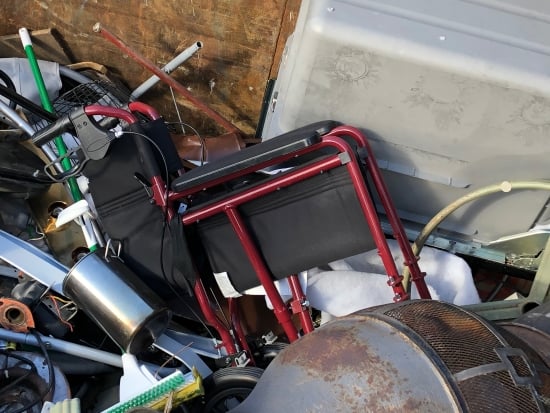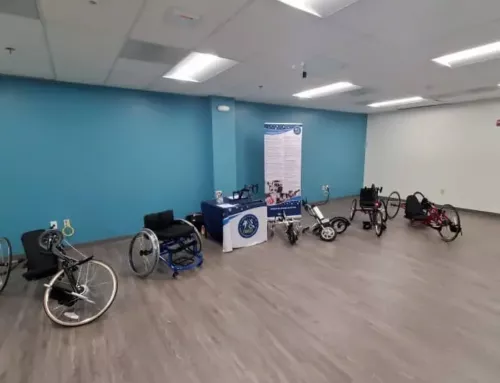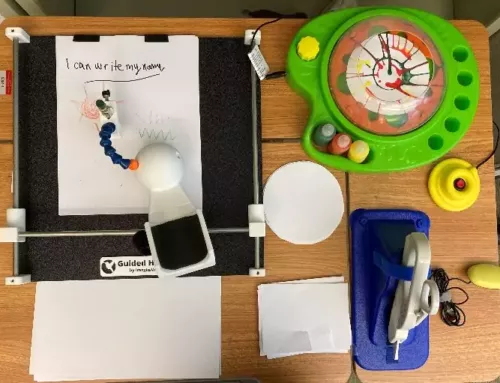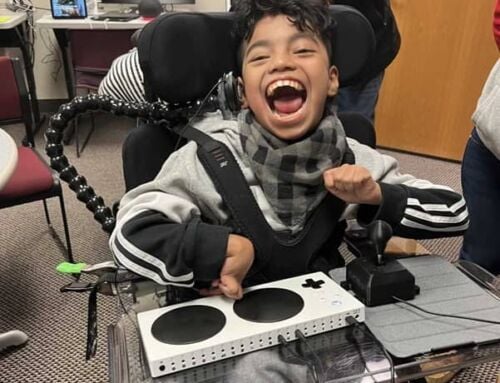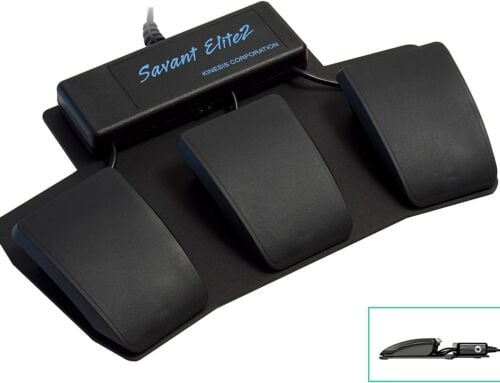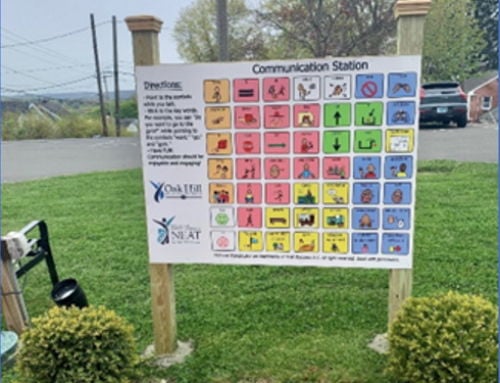AT for Eating with Parkinson’s

Probably most readers of this post know someone with Parkinson’s disease (PD). There are an estimated one million Americans living with PD and 10 million worldwide. The condition affects the central nervous system, is experienced by more men than women, and brings with it a range of symptoms that vary by individual, including tremors, limb rigidity, changes to gait, and balance. Also common are a loss of smell, fatigue, changes in cognition, sleep disorders, and weight loss.
“It is possible to have a good to great quality of life with PD,” asserts the Parkinson’s Foundation, noting that this is accomplished by working with a physician and following recommended therapies and medications. Approaches for maintaining a good quality of life include aerobic exercise, which improves symptoms, and dopaminergic drugs (to raise dopamine levels in the brain).
But how many families also think of their State or Territory AT Act program?
Last year, the Florida AT Act Program (FAAST) made a big difference for an older adult with Parkinson’s. “Roger” came to FAAST’s Atlantic regional demonstration center to find a solution for eating independently. His tremors had progressed to the point where eating had become a chore. Traditional silverware was too difficult to control.
FAAST has twelve regional demonstration centers serving Florida. Every state and territory provides device demonstration and loan services and in Florida equipment may be borrowed for up to six weeks at a time. Device demonstration and loan programs allow anyone to learn about different assistive technologies and try out equipment for free (or a nominal fee) before committing to a purchase. These short-term device loans are designed to fill a temporary need or to help an individual decide which device works best for them.
FAAST introduced Roger to a variety of utensils to steady a hand. The FAAST device loan inventory includes:
The Liftware Steady

The Liftware Steady has an electronic handle and utensil attachments. The handle’s sensors and motors stabilize the attachment to shake 70% less than the user’s hand (according to Liftware). The starter kit comes with a spoon and lists for $195. Additional utensils are $34.95 each. The device is marketed to individuals with Parkinson’s but is not preferred by everyone.
Celley Adaptive Eating Utensils

Celley Adaptive Eating Utensils are weighted to reduce tremors. They have sculpted built-in stands for easily grasping and picking up. The handles are wide and textured. FAAST loans a set of three and their listing notes they are three ounces each and may not be the right weight for all users. A set on Amazon lists for $29.99.
AliMed Weighted-Handle Flatware
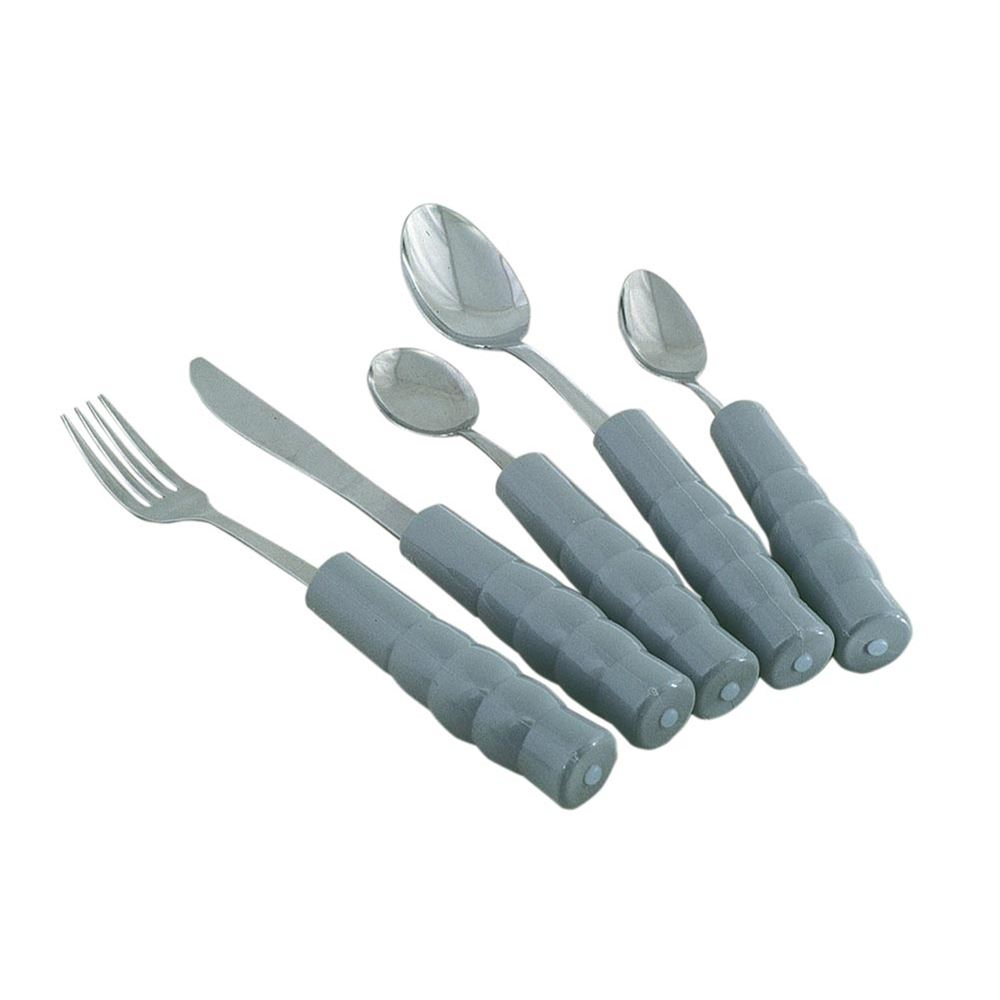
FAAST also loans AliMed weighted-handle flatware. These are eight ounces each and have 1″ diameter handles with ridges for easier grasping. The FAAST listing says they are balanced for weight distribution. They sell for $16.25 each at the AliMed website.
These options vary in weight, cost, and technology. With the help of FAAST, Roger had an opportunity to find what works best for him. The family appreciated the service.
“Thank you to the FAAST Center at the University of Central Florida for helping make life a little easier for my father-in-law! […] With the help of the FAAST Center’s device loan program, he has been able to try a variety of utensils and has found the perfect fit to help steady his hand. The use of the weighted utensils has allowed him to enjoy foods that he had been avoiding due to the motor control needed to prevent spills. Thank you for making it possible for persons with varying abilities to trial assistive equipment before purchasing items that may be the wrong choice. Your loan program has truly helped our family!”
Learn More:
AT for Eating Independently from AT3 Center News and Tips
Monthly Blog Digest
Search the blog
State AT Program Blogs
California
Florida
Indiana
Kentucky
Louisiana
Maryland
Massachusetts
Michigan
Montana
North Carolina
North Dakota
Utah
State AT Program Blogs
The AT3 Center, the Association of AT Act Programs (ATAP), and the Administration on Community Living (ACL) make no endorsement, representation, or warranty expressed or implied for any product, device, or information set forth in this blog. The AT3 Center, ATAP, and ACL have not examined, reviewed, or tested any product or device hereto referred.

